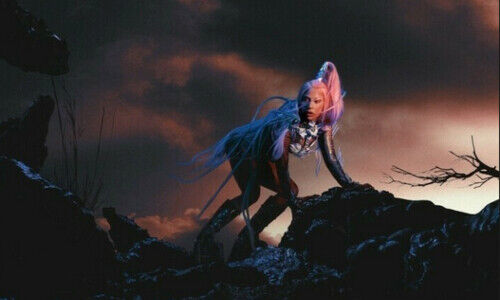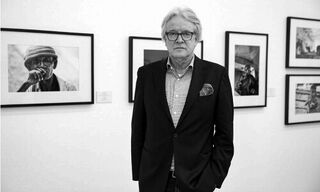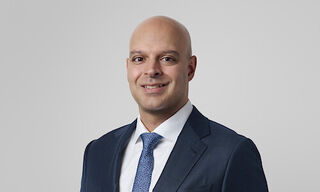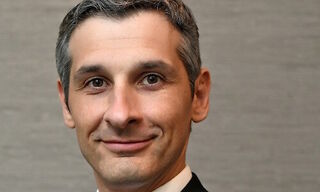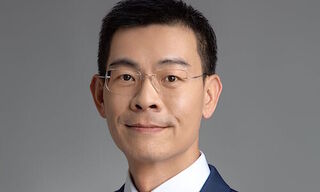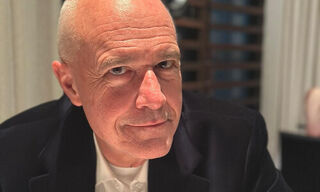The speed at which artificial intelligence is being used and the quality of the results pose major challenges for users, writes Brice Prunas in his article on finews.first.
finews.first is a forum for authors to comment on economic and financial topics.
On October 13, 2023, after months of legal disputes with three of the world's most powerful regulatory authorities (the US, UK, and Europe), the US technology group Microsoft finally completed its takeover of the American games manufacturer Activision.
Microsoft had already bought into Open AI and the acquisition of the world's largest publisher of video games helped reinforce its position as the global market leader and pioneer in the field of generative AI (artificial intelligence that generates content).
It was also a welcome opportunity for it to revisit the challenges of AI, particularly generative AI, in the video games industry.
«Generative AI should contribute significantly to the success of this industry»
The global market for video games is gigantic and is expected to be worth $300 billion this year, according to US-based Morgan Stanley. By comparison, the global music market (CDs, downloads, streaming) was worth just $26 billion in 2022, twelve times less! Moreover, the video game industry is expected to keep growing at a steady 4 percent a year until 2026.
That entirely justifies the high investments in the sector to date. Moreover, according to Morgan Stanley, a total of more than $100 billion will flow into the development of new products between this year and 2026. Generative AI is likely to contribute significantly to the industry's success in the following ways:
- Reducing costs and simplifying the development processes for video games (in particular, we believe that the programming and testing phases can be largely automated with the help of AI)
- Developing more customized and sophisticated games. A better quality offering can strengthen player loyalty (more players playing together and willing to pay more are likely to play longer sessions over longer periods of time)
- Better monetization of games, with obvious benefits. Using such tools, the top-ranked industry publishers (Take-Two, EA, Ubisoft, and Activision Microsoft) will extend their supremacy with ever-better games and intellectual property and be accompanied by ever-greater capital intensity.
«Could generative AI cost the major game publishers their intellectual property supremacy?»
According to Morgan Stanley, the combination of these two effects is likely to reduce the costs of developing video games and the associated operating expenses (for example, in the operation of gaming platforms) by 15 percent.
In addition to its advantages, generative AI also has the potential to change the video game industry from the ground up. With the ease and speed with which AI can be used and the quality of the results achieved, generative AI raises a number of questions that pose major challenges for the players in this sector:
- Will this lower the barriers to entry for the development of new games, or will it enable small or new market players to challenge the supremacy of the large (so-called AAA) publishers?
- Will we see a certain «commoditization» of this sector, or could generative AI cost the major game publishers their intellectual property supremacy?
- Will there be a shift in value creation in this industry, to the detriment of video publishers (e.g. EA, Take-Two) and in favor of distribution companies (such as Google, Apple, and Epic)? What would this mean for the future of IT tools such as the «engines» (development environments) for video games (for example Unity, the most important listed player in this sector)?
- In the wake of Microsoft's takeover of Activision, could other game publishers (such as Take-Two or EA) also arouse the interest of tech and media giants? (in the case of French publisher Ubisoft, this does not look likely in the short term after Tencent's recent investment).
Brice Prunas is a portfolio manager for global thematic funds at ODDO BHF Asset Management.
Previous contributions: Rudi Bogni, Peter Kurer, Rolf Banz, Dieter Ruloff, Werner Vogt, Walter Wittmann, Alfred Mettler, Robert Holzach, Craig Murray, David Zollinger, Arthur Bolliger, Beat Kappeler, Chris Rowe, Stefan Gerlach, Marc Lussy, Nuno Fernandes, Richard Egger, Maurice Pedergnana, Marco Bargel, Steve Hanke, Urs Schoettli, Ursula Finsterwald, Stefan Kreuzkamp, Oliver Bussmann, Michael Benz, Albert Steck, Martin Dahinden, Thomas Fedier, Alfred Mettler, Brigitte Strebel, Mirjam Staub-Bisang, Nicolas Roth, Thorsten Polleit, Kim Iskyan, Stephen Dover, Denise Kenyon-Rouvinez, Christian Dreyer, Kinan Khadam-Al-Jame, Robert Hemmi, Anton Affentranger, Yves Mirabaud, Katharina Bart, Frédéric Papp, Hans-Martin Kraus, Gerard Guerdat, Mario Bassi, Stephen Thariyan, Dan Steinbock, Rino Borini, Bert Flossbach, Michael Hasenstab, Guido Schilling, Werner E. Rutsch, Dorte Bech Vizard, Katharina Bart, Maya Bhandari, Jean Tirole, Hans Jakob Roth, Marco Martinelli, Thomas Sutter, Tom King, Werner Peyer, Thomas Kupfer, Peter Kurer, Arturo Bris, Frederic Papp, James Syme, Dennis Larsen, Bernd Kramer, Armin Jans, Nicolas Roth, Hans Ulrich Jost, Patrick Hunger, Fabrizio Quirighetti, Claire Shaw, Peter Fanconi, Alex Wolf, Dan Steinbock, Patrick Scheurle, Sandro Occhilupo, Will Ballard, Nicholas Yeo, Claude-Alain Margelisch, Jean-François Hirschel, Jens Pongratz, Samuel Gerber, Philipp Weckherlin, Anne Richards, Antoni Trenchev, Benoit Barbereau, Pascal R. Bersier, Shaul Lifshitz, Klaus Breiner, Ana Botín, Martin Gilbert, Jesper Koll, Ingo Rauser, Carlo Capaul, Markus Winkler, Thomas Steinemann, Christina Boeck, Guillaume Compeyron, Miro Zivkovic, Alexander F. Wagner, Eric Heymann, Christoph Sax, Felix Brem, Jochen Moebert, Jacques-Aurélien Marcireau, Ursula Finsterwald, Michel Longhini, Stefan Blum, Zsolt Kohalmi, Nicolas Ramelet, Søren Bjønness, Gilles Prince, Salman Ahmed, Peter van der Welle, Ken Orchard, Christian Gast, Jeffrey Bohn, Juergen Braunstein, Jeff Voegeli, Fiona Frick, Stefan Schneider, Matthias Hunn, Andreas Vetsch, Fabiana Fedeli, Kim Fournais, Carole Millet, Swetha Ramachandran, Thomas Stucki, Neil Shearing, Tom Naratil, Oliver Berger, Robert Sharps, Tobias Mueller, Florian Wicki, Jean Keller, Niels Lan Doky, Johnny El Hachem, Judith Basad, Katharina Bart, Thorsten Polleit, Peter Schmid, Karam Hinduja, Zsolt Kohalmi, Raphaël Surber, Santosh Brivio, Mark Urquhart, Olivier Kessler, Bruno Capone, Peter Hody, Michael Bornhaeusser, Agnieszka Walorska, Thomas Mueller, Ebrahim Attarzadeh, Marcel Hostettler, Hui Zhang, Michael Bornhaeusser, Reto Jauch, Angela Agostini, Guy de Blonay, Tatjana Greil Castro, Jean-Baptiste Berthon, Marc Saint John Webb, Dietrich Goenemeyer, Mobeen Tahir, Didier Saint-Georges, Serge Tabachnik, Vega Ibanez, David Folkerts-Landau, Andreas Ita, Michael Welti, Mihkel Vitsur, Fabrizio Pagani, Roman Balzan, Todd Saligman, Christian Kaelin, Stuart Dunbar, Carina Schaurte, Birte Orth-Freese, Gun Woo, Lamara von Albertini, Ramon Vogt, Andrea Hoffmann, Niccolò Garzelli, Darren Williams, Benjamin Böhner, Mike Judith, Jared Cook, Henk Grootveld, Roman Gaus, Nicolas Faller, Anna Stünzi, Thomas Höhne-Sparborth, Fabrizio Pagani, Guy de Blonay, Jan Boudewijns, Sean Hagerty, Alina Donets, Sébastien Galy, Roman von Ah, Fernando Fernández, Georg von Wyss, Stefan Bannwart, Andreas Britt, Frédéric Leroux, Nick Platjouw, Rolando Grandi, Philipp Kaupke, Gérard Piasko, Brad Slingerlend, Dieter Wermuth, Grégoire Bordier, Thomas Signer, Brigitte Kaps, Gianluca Gerosa, Christine Houston, Manuel Romera Robles, Fabian Käslin, Claudia Kraaz, Marco Huwiler, Lukas Zihlmann, Nadège Lesueur-Pène, Sherif Mamdouh, Harald Preissler, Taimur Hyat, Philipp Cottier, Andreas Herrmann, Camille Vial, Marcus Hüttinger, Ralph Ebert, Serge Beck, Alannah Beer, Stéphane Monier, Ashley Simmons, Lars Jaeger, Shanna Strauss-Frank, Bertrand Binggeli, Marionna Wegenstein, George Muzinich, Jian Shi Cortesi, Razan Nasser, Nicolas Forest, Joerg Ruetschi, Reto Jauch, Bernardo Brunschwiler, Charles-Henry Monchau, Philip Adler, Ha Duong, Teodoro Cocca, Beat Wittmann, Jan Brzezek, Florin Baeriswyl, Nicolas Mousset, Beat Weiss, Pascal Mischler, Andrew Isbester, Konrad Hummler, Jan Beckers, Martin Velten, Katharine Neiss, Claude Baumann, Daniel Roarty, Kubilay Yalcin, Robert Almeida, Karin M. Klossek, Marc Taverner, Charlie T. Munger, Daniel Kobler, Patrick Stauber, Colin Vidal, Anna Rosenber, Judith Wallenstein, Brigitte Kaps, Adriano Lucatelli, Daniel Goleman, and Val Olson.













